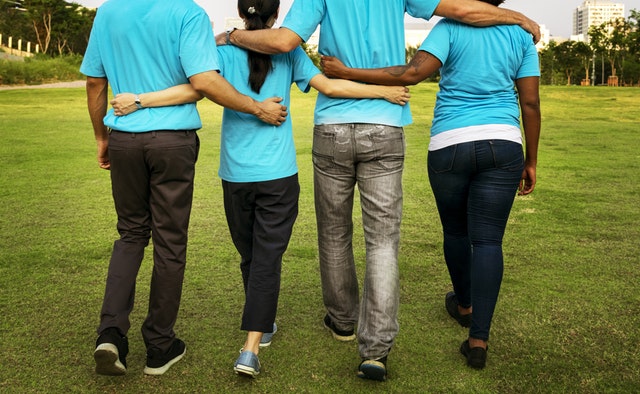Imagine an adult education (AE) school where students are in the driver’s seat: a school where attendees prefer to be called “participants” because they do not only attend diverse courses, but they also take an active part in the design of the learning process, the school governance and the management of its human and material resources.
In Barcelona, Spain, there is one of the first AE schools to introduce an educational model based on student ownership and active community participation, inspired by the so-called “learning communities”(1). As the school coordinator explained:
People attending the school said ‘being mere students is not enough for us; we don´t come here just to listen to a professor and then go home. No. This is our school, we decide how it is and participate in it. We are participant persons in AE’ (AE school authority, Spain).
The school is very popular nowadays, with around 150 volunteers -between educators and administrative staff – and it welcomes around 2000 participants per year, all above 18 years old and with very diverse profiles. Adult women aged between 50 and 60 years predominate (64-66%), but the other age range groups are well represented as well. 20% of participants have immigrant origin, associated with more than 60 nationalities, and many of them are refugees. They come to attend mostly the language classes (Spanish and Catalan) and are a highly mobile population.
The school’s participatory approach is inherited from its grassroots origins and expressed in the “Declaration of rights of participant persons” in AE(2), approved and signed in 1999 by representatives of various associations of AE schools across the Spanish territory. The Declaration includes specific provisions for granting learners’ full participation in AE design and implementation, so participants gain confidence in their active role in the school and, by extension, to other spheres of life. This participatory approach also encourages students’ awareness of and exercise of citizenship:
Here there isn´t a faculty that says how everything has to be, rather they are participants themselves together with the whole community, the whole school, who decide what the training offer is, at what times, how we spend the school money (…) That´s why we are committed to this democratic education model, because decisions are made between everyone and regardless of your training, your position, the days you come [to school]. An illiterate person can come to the assembly, there can be a University volunteer, a teacher, a neighbour, even if they do not attend school. All decision spaces are open. Thanks to everybody´s participation and this democratic structure, the school has become a widely extended project in the neighbourhood that people know about and feel as their own (AE school authority, Spain).
The school opens every day from 9am to 10pm, which is essential to cover all needs and time constraints: “the more extended time schedules you can have, the more opportunities you give people to attend”, mentions the AE school authority interviewed. Courses are both formal (regulated by the Department of Education) and non-formal AE: lower and upper secondary education, basic literacy, languages (Catalan, Spanish, English, French, German, Chinese, Russian, Arab), computer literacy, workshops and dialogic tertulias (gatherings to discuss literature, music, art, maths and sciences, philosophy, social sciences, and financial literacy – “to understand what you sign in the bank,” among others). According to the school informant, the most demanded courses in 2017 were English, followed by spoken Spanish (mostly for immigrants), Catalan and computer literacy.
There are many challenges in the implementation of this educational model, including limited material resources and contrasting approaches to deal with long-standing problems with AE in Spain, such as high dropout rates(3). One of the school authorities criticised an increasing tendency to homogenise participants´ profiles and the loss of the transformative vision of long life learning, which goes “beyond those who did not get a degree (…) It is not about people who lack something, but people who want to learn more”. Despite difficulties, he asserted:
We are not keen on the culture of complaint, of saying ´we can´t do it´: as [Brazilian popular educator Paulo] Freire said, ‘[we´d better learn] to overcome difficulties with the possibilities [we have]’.
(1) More information on learning communities can be accessed here: https://comunidadesdeaprendizaje.net
(2) A Catalan version of this document can be accessed here: http://www.edaverneda.org/fitxers/declaracio_drets.pdf
(3) Spain presents a worrying scenario for youth aged 18 to 24 years, with high rates of school dropout rates, around 19% according to 2018 data (80% more than the European average of 10.7%). Source: www.fbbva.es/wp-content/uploads/2018/01/FBBVA_Esenciales_23.pdf
Dr. Cecilia Gordano



Comments